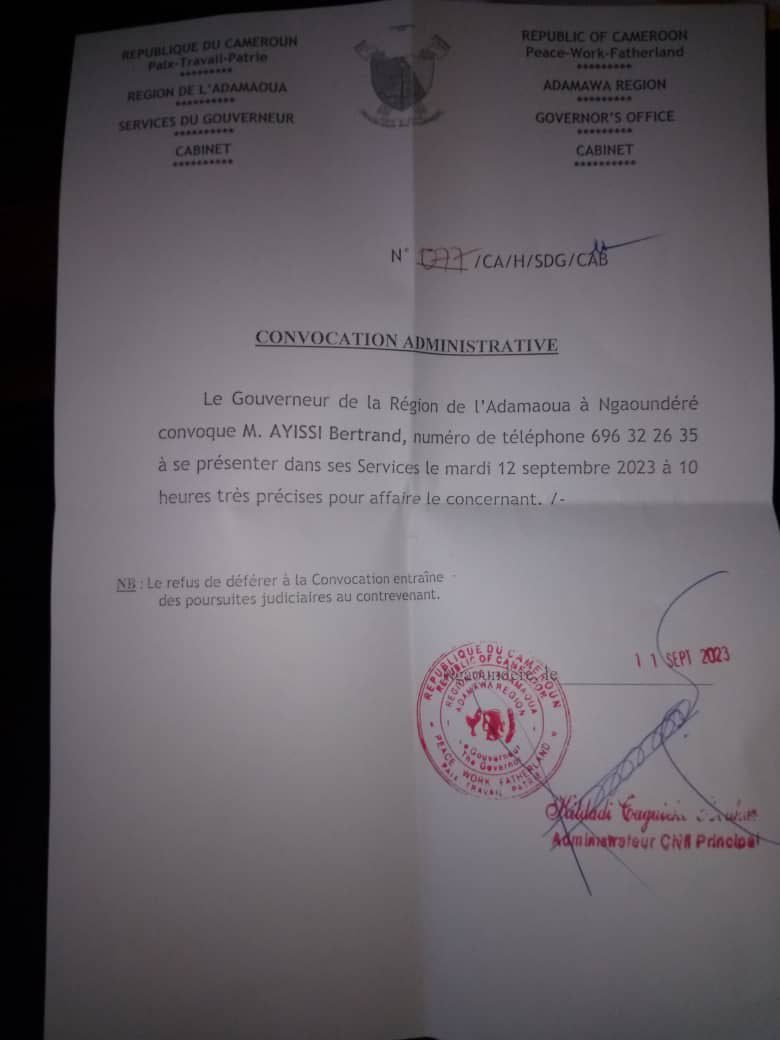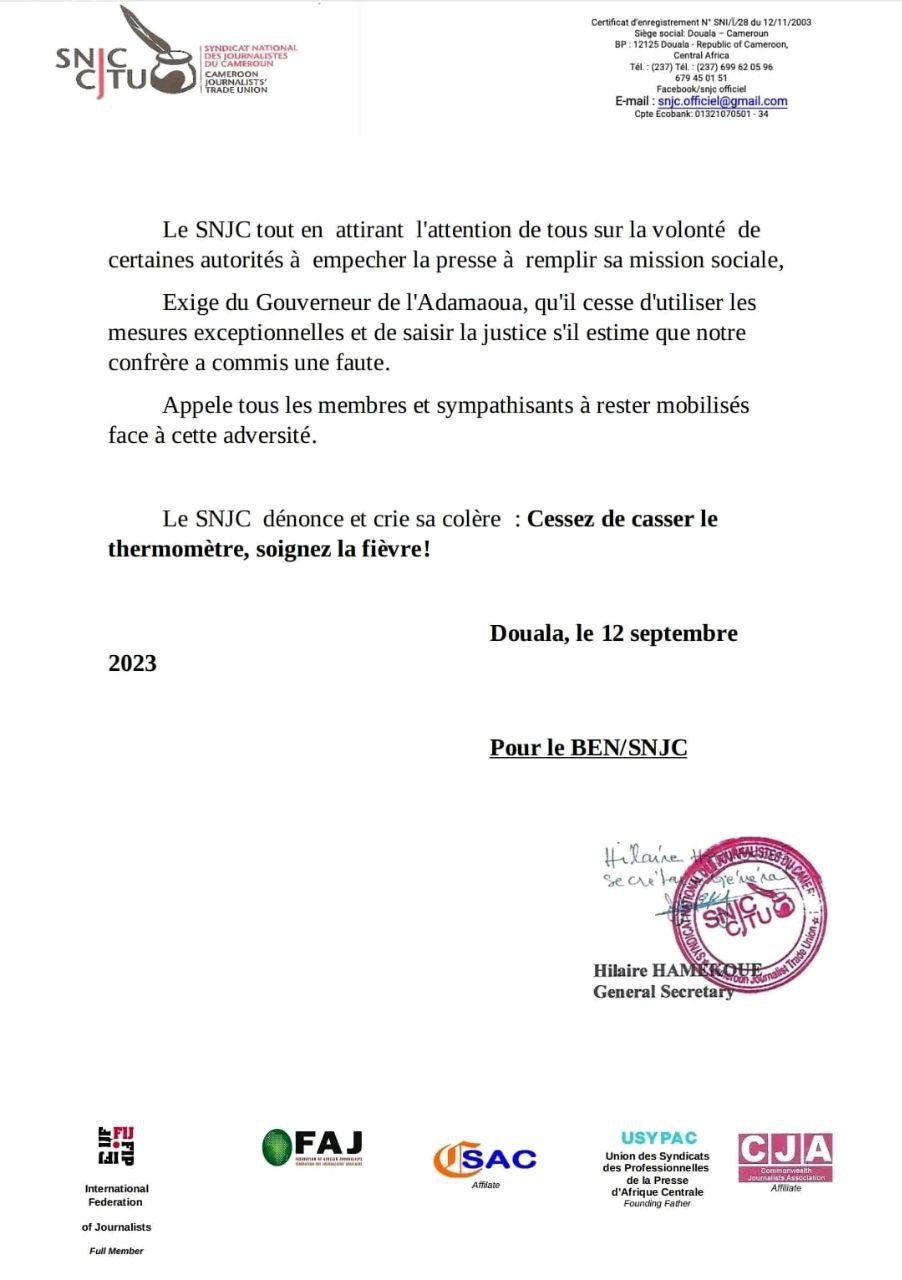The Governor of the Adamawa region, Kildadi Taguieke Boukar Ayissi, has ordered the arrest of Bertrand Ayissi, a journalist at l’Oeil du Sahel Newspaper, for publishing an investigative article on human trafficking.
The story on human trafficking was published in the Newspaper’s edition of August 18, 2023, on the cover page, pages 6 and 7.
On September 11, 2023, the governor summoned the journalist to appear before his office on September 12 at 10 a.m.
“The Governor of the Adamaoua Region in Ngaoundéré summons Mr. AYISSI Bertrand… to appear in his Office on Tuesday, September 12, 2023, at 10 a.m. for matters concerning him,” a release by the Governor stated.

According to reports, the Governor accused the journalist of wanting to “disturb public order”.
He was later placed in police custody for 24 hours, after which he was released but remains under investigation.
CJTU reacts to the intimidation
The Cameroon Journalists’ Trade Union (CJTU) strongly condemned the arrest of Ayissi, qualifying it as An “intimidation” and “attack on press freedom”.
“Having complied with the administrative summons, Bertrand AYISSI was treated as a “hired journalist manipulated by men hiding in the shadows to blacken the work done on the security level in the region” and handed over to the Vina gendarmerie to be placed in custody,” reveals the Trade Union in a release published today, September 13, 2023.
It went on, “What further proof is there to admit that the press now lives in insecurity and that Justice must be done to reconcile the Cameroonian people, the press, and the State? “
In this light, the trade union has urged all its members and supporters to remain mobilised in the face of this adversity.
Not the only case at hand
The incident comes at a time when the Governor of the South West Region of Cameroon is facing backlash for indefinitely suspending one of Cameroon’s leading Newspapers, The Post.
The Post Newspaper suffered a leaked publication with a headline insinuating that 66% of Cameroonians are for a coup d’état in the country, reporting a survey carried out by a Ghanaian-based organisation, Afrobarometer.
To some Cameroonians, it is not the role of the Governor to monitor or sanction the media, but that of the National Communication Council—NCC.
“The National Communication Council is a regulatory body and the administration is supposed to be hands-off since the body was created by the administration and is under it’s aegis,” said Nsaikimu Sibarah Ignatius on Facebook.
“That is the million-dollar question but what amazes me is the rate at which people applauded the act. It was wrong, it is wrong, and will still be wrong for an administrator to censor a press organ. I think The Post is the most-read English paper in Cameroon,” added Sambitla Tita Fangmbung.
In a recent outing, the former desk editor of the Newspaper, Abah Isidore, said, “The New Deal Government has successfully taken us back to the inglorious era of despotism, characterised by the Draconian press laws, where celebrated clerks, acting as administrators, would muzzle the press to quietude, especially those that have refused to act as political songbirds for corrupt administrators and politicians.”





